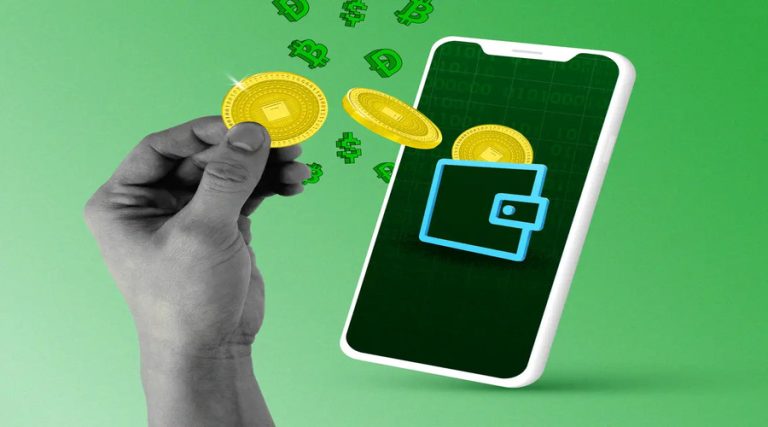
In recent years, influencer marketing has become an increasingly popular and effective way for brands to reach their target audience. However, as influencer marketing has grown, so has the issue of authenticity and trust. With the rise of non-fungible tokens (NFTs), brands and influencers now have a new tool to help monetize and authenticate influencer content. In this article, we will explore the benefits of using NFTs in influencer marketing and provide pointers on how to properly integrate them into your marketing strategy.
What are NFTs?
NFTs are unique digital assets that are stored on a blockchain, making them rare and irreplaceable. These assets can range from digital art and music to collectibles and even virtual real estate. NFTs have exploded in popularity recently, with some selling for millions of dollars at auction. One of the key benefits of NFTs is that they can be used to prove ownership and authenticity of digital assets.
How can NFTs be used in influencer marketing?
By using NFTs, influencers can create unique and authentic content that can be monetized in several ways. For example, an influencer could create a limited edition NFT that is only available to a select number of their followers. This NFT could be used to unlock exclusive content or even experiences, such as a private meet-and-greet with the influencer.
NFTs can also be used to create a sense of scarcity and urgency around an influencer’s content. By creating a limited number of NFTs, influencers can make their content more valuable and exclusive, which can help to increase engagement and drive sales.
In addition to monetizing content, NFTs can also be used to authenticate influencer content. With the rise of deepfake technology, it can be difficult to know whether a piece of content is genuine or not. By using NFTs, influencers can prove that a piece of content is authentic and original, which can help to build trust with their audience.
How to integrate NFTs into your influencer marketing strategy
To properly integrate NFTs into your influencer marketing strategy, there are several key steps to follow:
Step 1: Identify the right influencer
The first step is to identify an influencer that aligns with your brand and has a strong following. It’s important to choose an influencer that has a loyal and engaged audience, as this will help to maximize the impact of your NFT campaign.
Step 2: Determine the type of NFT
Next, you’ll need to determine the type of NFT that you want to create. This could be anything from a limited edition digital art piece to an exclusive virtual experience. It’s important to choose a type of NFT that is unique and aligns with the influencer’s brand.
Step 3: Create the NFT
Once you have identified the influencer and determined the type of NFT, you’ll need to create the NFT. There are several platforms available that can help you create and sell NFTs, such as OpenSea and Nifty Gateway.
Step 4: Launch the NFT campaign
The final step is to launch the NFT campaign. This should include promoting the NFT on social media and other channels, as well as offering incentives for fans to purchase the NFT, such as access to exclusive content or experiences.
Types of NFTs for Influencer Marketing
There are several types of NFTs that can be used for influencer marketing, each with its own unique benefits. Some examples include:
- Limited edition digital art: Influencers can create digital art that is only available as an NFT, making it a rare and valuable asset for collectors.
- Virtual experiences: NFTs can be used to unlock exclusive virtual experiences, such as a private online concert or a one-on-one chat with the influencer.
- Collectibles: Influencers can create limited edition collectibles that are only available as NFTs, such as a unique piece of merchandise or a signed photo.
By choosing the right type of NFT, brands and influencers can create a unique and valuable asset that resonates with their audience and drives engagement.
Benefits of Authenticating Influencer Content with NFTs
One of the key benefits of using NFTs in influencer marketing is the ability to authenticate content. With deepfake technology becoming increasingly sophisticated, it can be difficult to know whether a piece of content is genuine or not. By using NFTs, influencers can prove that a piece of content is authentic and original, which can help to build trust with their audience.
Additionally, NFTs can help to protect the intellectual property of influencers and brands. By proving ownership of a piece of content through an NFT, influencers and brands can prevent others from using or copying their content without permission.
Challenges of Using NFTs in Influencer Marketing
While there are many benefits to using NFTs in influencer marketing, there are also several challenges to consider. For example:
- Limited audience: NFTs are still a relatively new technology, and not all consumers may be familiar with them. This can limit the audience for NFT campaigns.
- High cost: Creating and selling NFTs can be expensive, which may be prohibitive for some influencers and brands.
- Technical expertise: Creating and selling NFTs requires technical expertise and knowledge of blockchain technology, which may be a barrier for some influencers and brands.
Despite these challenges, the benefits of using NFTs in influencer marketing can outweigh the costs and difficulties.
Best Practices for NFTs in Influencer Marketing
To ensure the success of an NFT campaign in influencer marketing, there are several best practices to follow:
- Choose the right influencer: It’s important to choose an influencer that aligns with your brand and has a strong following.
- Create a unique and valuable NFT: The NFT should be something that is exclusive and valuable to the influencer’s audience.
- Set a clear goal: Determine what you want to achieve with the NFT campaign, such as driving sales or increasing engagement.
- Promote the NFT: It’s important to promote the NFT on social media and other channels to maximize exposure and engagement.
- Follow legal guidelines: Ensure that the NFT campaign follows legal guidelines and regulations.
By following these best practices, brands and influencers can create successful NFT campaigns that drive results.
Future of NFTs in Influencer Marketing
As NFTs continue to gain popularity, we can expect to see more brands and influencers using them in creative ways to monetize and authenticate influencer content. For example, we may see NFTs being used to create virtual experiences, such as exclusive online events or meet-and-greets with influencers.
Additionally, NFTs could be used to create a new revenue stream for influencers, who could sell NFTs as a way to monetize their content directly. This could potentially disrupt the traditional influencer marketing model, which relies on brand sponsorships and partnerships.
Examples of Successful NFT Campaigns in Influencer Marketing

There have already been several successful NFT campaigns in influencer marketing, including:
- Paris Hilton: The socialite and entrepreneur sold her first NFT for over $1 million, featuring a digital artwork and a real-life NFT-inspired piece of jewelry.
- Grimes: The musician sold a series of NFTs that included music, artwork, and a one-of-a-kind video. The NFTs sold for a total of $6 million.
- Logan Paul: The YouTuber and boxer sold a series of NFTs featuring artwork and exclusive experiences, such as a chance to meet him in person.
These successful campaigns demonstrate the potential of NFTs in influencer marketing and the demand for unique and exclusive digital assets.
Ethical Considerations in NFTs and Influencer Marketing
As with any emerging technology, there are ethical considerations to consider when using NFTs in influencer marketing. For example, there is a risk of exploitation and profiteering, as some influencers may use NFTs to sell access to their audience or to create a sense of exclusivity that benefits only themselves.
Additionally, there is a risk of environmental damage, as creating and selling NFTs requires significant energy consumption and contributes to carbon emissions.
To mitigate these ethical considerations, it’s important to use NFTs in a transparent and ethical way, and to consider the potential impact on both the audience and the environment.
Measuring Success of NFT Campaigns in Influencer Marketing
To measure the success of an NFT campaign in influencer marketing, it’s important to track key metrics such as:
- Sales: How many NFTs were sold and for what price?
- Engagement: How many people engaged with the NFT campaign on social media and other channels?
- Traffic: Did the NFT campaign drive traffic to the influencer’s website or social media profiles?
- Brand lift: Did the NFT campaign improve brand awareness or perception?
By tracking these metrics, brands and influencers can evaluate the success of the NFT campaign and make data-driven decisions for future campaigns.
NFTs and the Future of Content Creation
The rise of NFTs in influencer marketing is part of a larger trend towards the monetization and authentication of digital content. As more and more content is created and consumed online, there is a growing need for tools and technologies that can help to prove ownership and authenticity.
NFTs provide a new and exciting opportunity for content creators to monetize their work and build trust with their audience. In the future, we can expect to see more uses for NFTs in content creation, such as the creation of digital collectibles and the authentication of news articles and other forms of online content.
Conclusion
In conclusion, NFTs provide a new and exciting opportunity for brands and influencers to monetize and authenticate influencer content. By following the steps outlined above and choosing the right type of NFT, brands and influencers can create unique and valuable assets that resonate with their audience and drive engagement. While there are challenges to consider, the benefits of using NFTs in influencer marketing make it an exciting opportunity for the future of marketing.
I have been writing about cryptocurrencies for over two years and I’m widely considered one of the most knowledgeable and respected authors in the space. I have a deep understanding of the underlying technology and market dynamics, and my insights have helped countless investors make informed decisions about their portfolios. I’m a speaker and commentator, and my work has been featured in major publications such as CoinDesk, Forbes, and The Wall Street Journal. I also run a popular cryptocurrency trading signals service that has helped thousands of people make money in the volatile but potentially lucrative world of digital assets.


